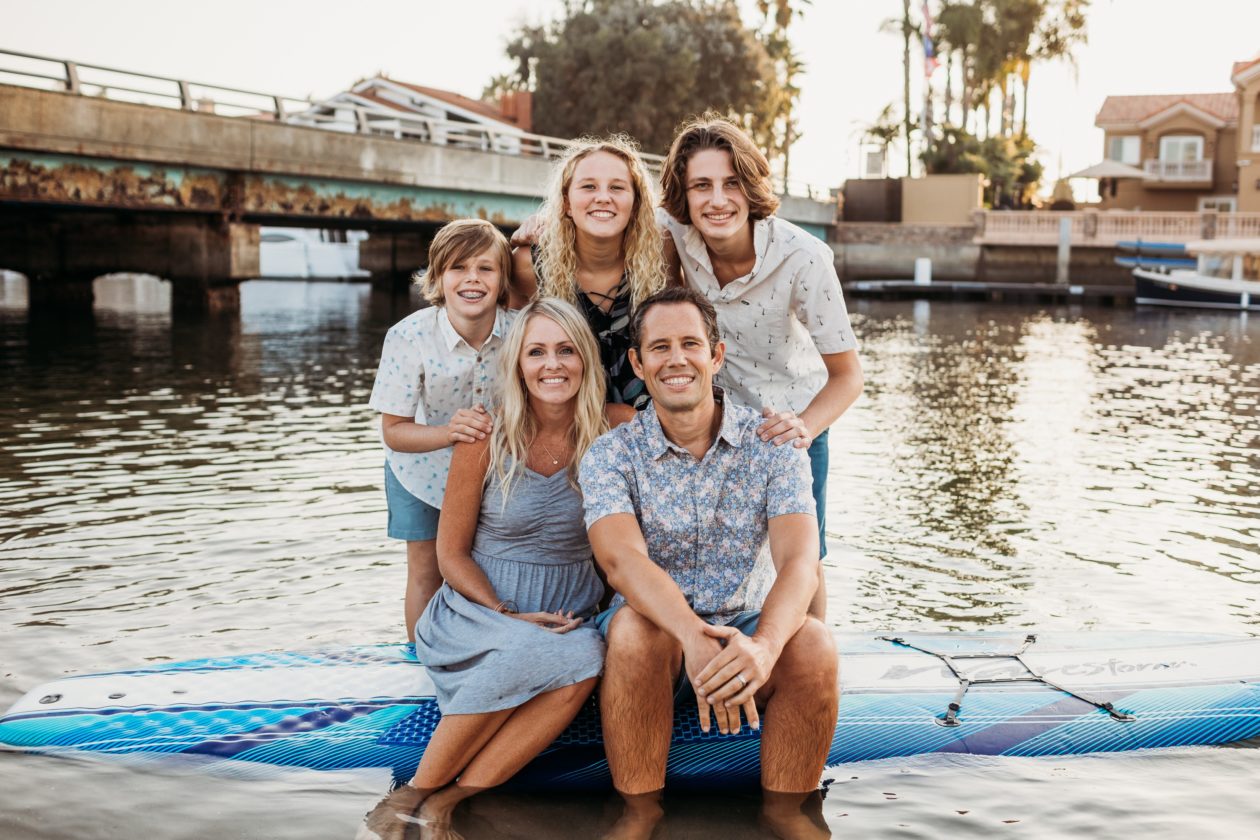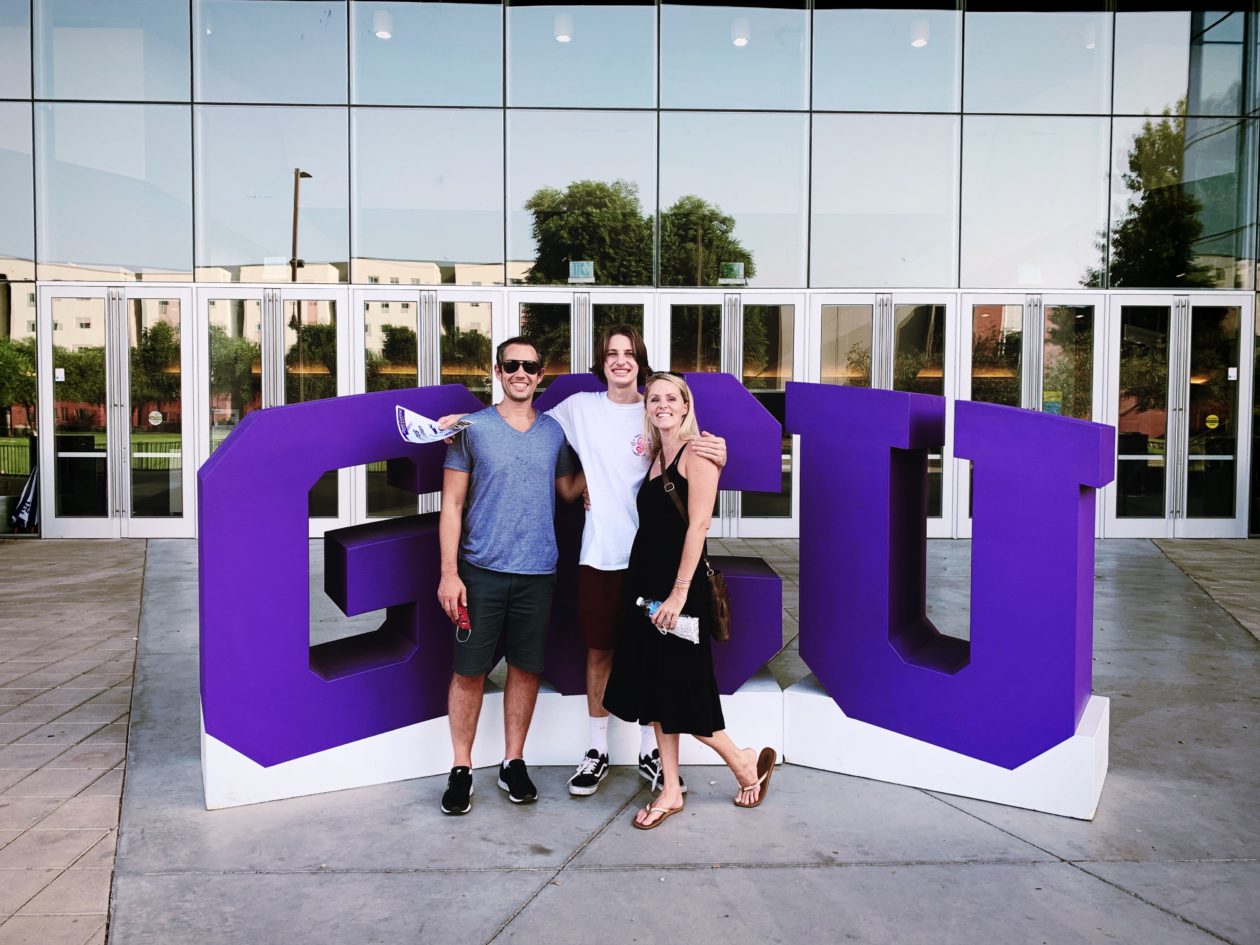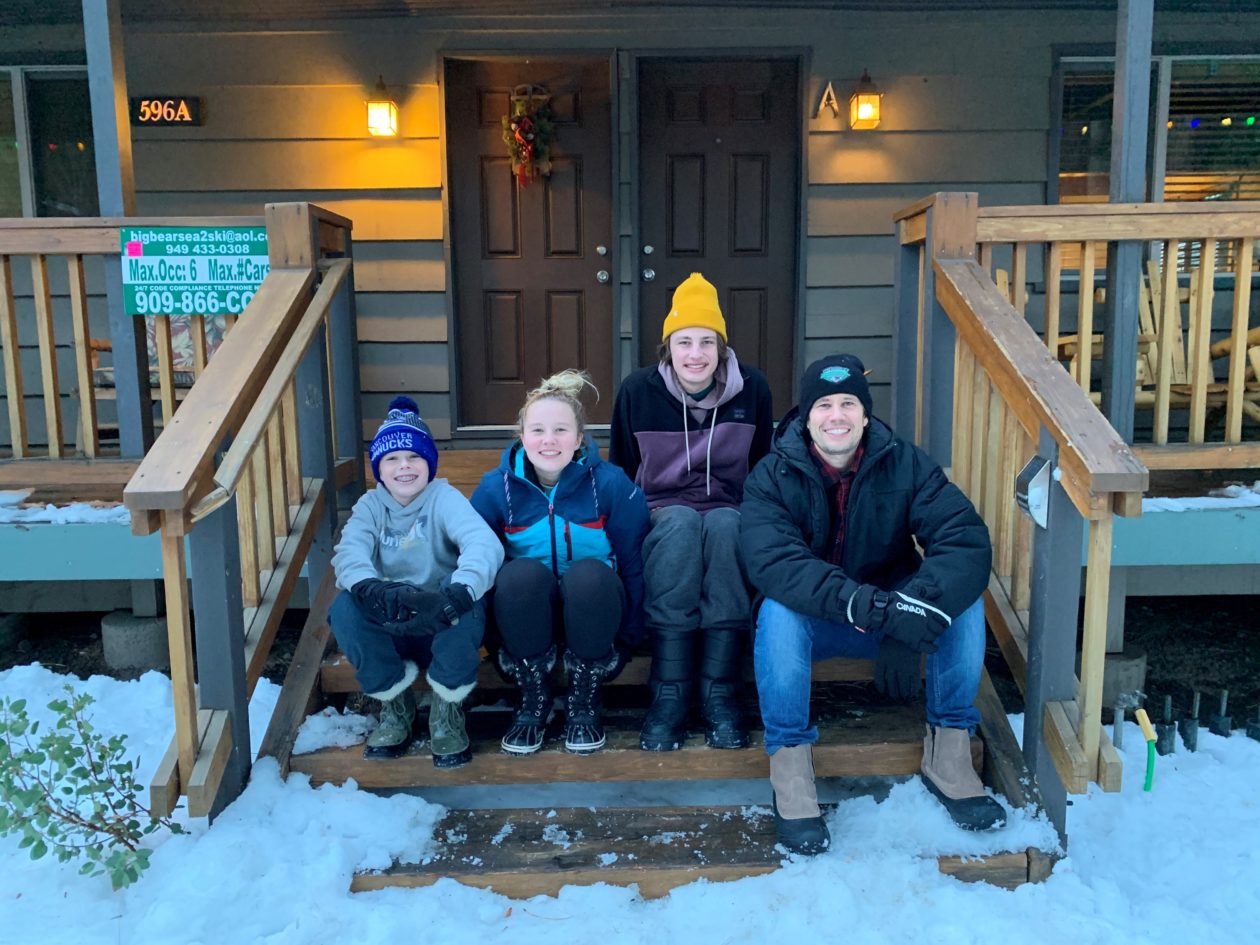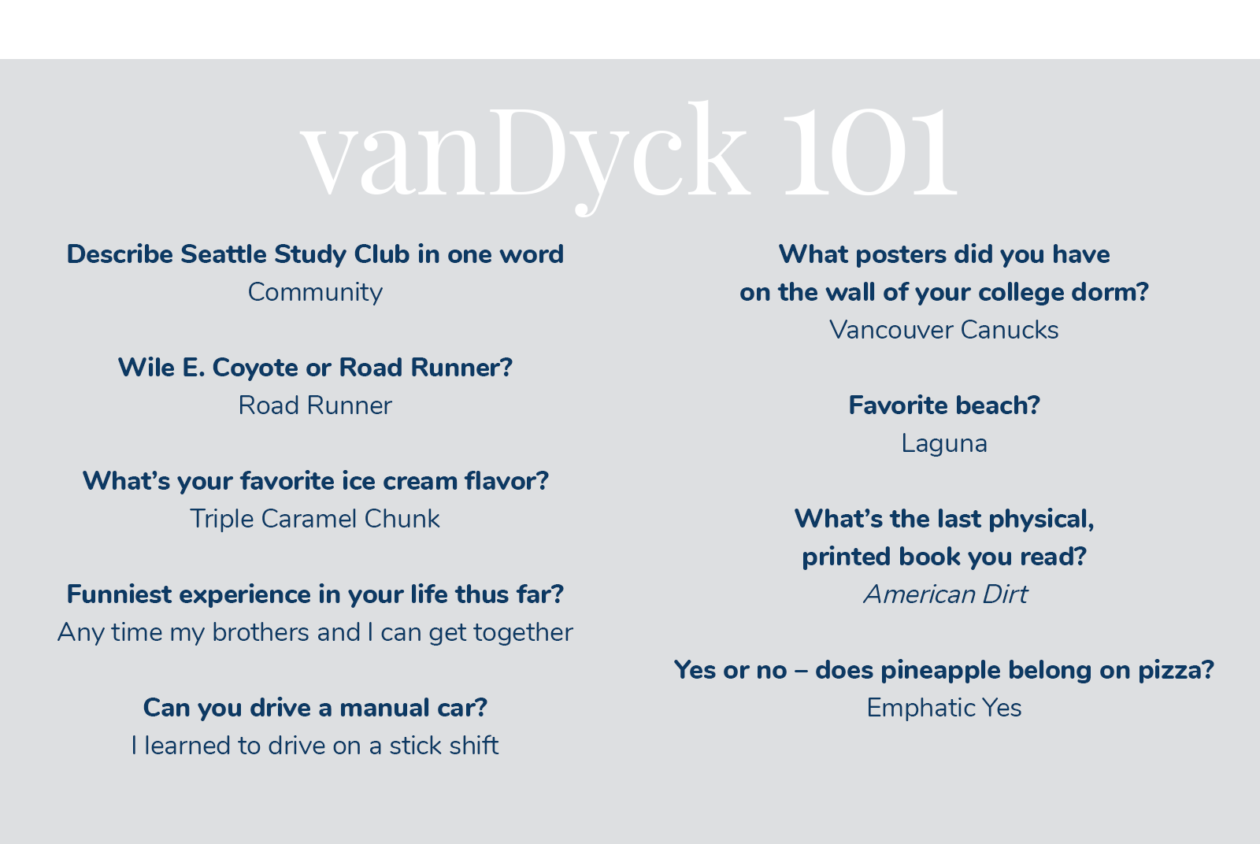While working in sales for a medical device company, John vanDyck connected with an oral surgeon who explained how restoring dental function changes people’s lives. The surgeon then introduced John to the implant company he was working with, Nobel Biocare, and 17 years later, after multiple leadership positions and a family move from British Columbia to Southern California, John finds himself leading the company’s marketing efforts in North America.
From grandma’s wisdom about the importance of family, to the blunder that taught him minor challenges need the same level of care and attention normally reserved for the bigger snafus, John shares the lessons he’s learned in life and work.

Q Which came first—marketing or the dental industry?
The dental industry came first. In 2004 I supported an oral surgeon while working in sales for a medical device company. He took the time to show me how he was changing trauma and cancer patients’ lives by restoring their function through dental implants. I found it fascinating, and he introduced me to the company he was working with, Nobel Biocare. Shortly after I joined their organization in a sales role in Vancouver, British Columbia. It has been an amazing journey with Nobel over the past 17 years as they have trusted me in different leadership positions and surrounded me with great mentors. In 2012 my family and I moved to Southern California to lead our digital dentistry business in North America, and in 2016 I was asked to lead our marketing organization. I have really enjoyed stepping into marketing and have leveraged my sales experience to ensure everything we do is customer centric.
Q Where did you go to school?
I went to a small private school in Langley, British Columbia called Trinity Western University. There are approximately 4,000 students who attend annually. I played varsity soccer for four years while studying in the business program, and received my bachelor’s of business administration. It is an incredible school that prepared me for my career, and I made meaningful relationships with people who are my closest friends to this day.
Q What’s the biggest lesson you learned from your grandmother?
I am fortunate to still have my grandmother with us today. She is 92 and someone I cherish dearly. The biggest lesson I have learned from her is the importance of family. Friendships come and go but family is for life, and if you invest in your family, it reaps the greatest rewards. She is an incredibly strong woman who has gone through a lot in her life, and I thank her for keeping us all accountable to staying close.
Q If you could tell your younger self anything, what would it be?
Other than to invest in Apple, I would say to be resilient through adversity. Early in my career, when things got tough, I made the easy decision to move to the next opportunity. As I have grown, I have realized the best experiences come from the learnings you receive while overcoming obstacles. This shows those around you the character you have when the going gets tough, and from these experiences the best new opportunities for growth have presented themselves.

Q Given everything that’s happened in the last year with the pandemic, how has the game changed in providing clients with solutions? Do you think the change will stick?
There have been many learnings we have gained over the past year. We learned to communicate more effectively in a virtual environment both within our own company and with our customers. As someone who used to spend greater than 50 percent of my time traveling and on an airplane to meet with customers, I have actually spent more time with customers over the past 12 months than I could have ever imagined in the pre-pandemic world. I believe it is important to have in-person meetings and interactions to really build trust and relationships, but I do feel we will never go back to the extreme we had before.
Q Over the course of your career, how has problem solving changed?
We have excellent tools within our Envista toolbox that I have learned from, in particular with problem solving. We are constantly looking for problems we can tackle for continuous improvement, no matter how big or small. I have learned when confronted with a challenge to not focus immediately on solutions but to take the time to identify what the real root cause of the problem is. From there, we can start to look at meaningful solutions and avoid the risk of only addressing symptoms.
Q What have you learned about yourself from working in this industry?
Some of the best experiences I have had have been the time I spend with our customers watching them treat patients live. To see how much planning, effort and care they exert to providing the best care for their patients, and then seeing the impact this has on these peoples’ lives has really changed my perspective. Building a successful career has always been important for me, but in my time with Nobel Biocare I have learned that representing a company that invests in improving quality of life is equally motivating.
Q What’s your favorite, under-appreciated aspect of marketing?
The behavioral element of transformative marketing. We often jump to the flashy marketing assets and complex campaigns, without considering how our target customer is going to react. It is an artform to create messaging that resonates with your audience and takes them on their own personal journey of whether to see value in the product or service you are providing.
Q Tell us about a mix up that ended up being a big career or life lesson for you.
Earlier in my sales career I sold a customer a digital piece of equipment. He had immediate challenges with adapting to the technology and I did not respond with an appropriate level of urgency, chalking it up to him just needing time to get used to it. The situation escalated over weeks to where it became a much larger problem and jeopardized our company’s overall relationship with a large customer. Through this experience I learned to always treat a minor challenge with the same level of importance as a larger challenge. In doing so quickly, you can resolve 99 percent of these problems before they become large, disruptive, time consuming issues.
Q There’s a lot of information coming at us these days, around the clock—do you unplug, and how often?
It can be difficult for me to unplug as much as I probably should; however, I try to unplug on most weekends. I love going hiking with my wife and kids and watching them play their different sports. I am lucky to have a great family support network around me and when we are on vacation or at a tournament, I do my best to keep my phone in my pocket.

Q What do you think is the most effective means of convincing people to adopt an idea you are sharing? Why?
I try to structure my message and approach to what is important to the person in front of me and not what is important to me. They best way to do this is to ask lots of questions and understand what the other person truly needs. In doing this, I am in a much better position to present my idea to address the specific needs and in a way that will increase my chances of acceptance.
Q When you play the highlight reel of your career, what accomplishment stands out most for you?
The accomplishments I am most proud of are those in which anyone I have coached or mentored experiences success in our organization. Having worked for Nobel Biocare for as long as I have, I have hired or promoted many people over the years. Two or three of these individuals really stand out for me, as they are now leading large teams or organizations for Nobel and having incredible success. This is what fuels me to invest the time in those I am coaching today.
Q What do you see happening in product marketing in the next five years?
Marketing will continue to evolve technologically, with marketeers being able to retarget more precisely at the individual level. This is happening today, and we will continue to enhance our ability to spend our resources only on those individuals where our product is a fit. As a consumer, this will reduce the noise of mass marketing and create a more thoughtful decision-making process.
Q Are you more comfortable with the certainty of the familiar or the possibility of the unknown? Why?
I gravitate toward the possibility of the unknown, as that is where the greatest opportunity is. With this said, I base decisions on historical trends and experiences.
Q Describe your best day.
My best day starts with a Tim Hortons coffee with my wife, which we have to import from Canada. It then involves spending some time in an ice rink watching my youngest play hockey, followed by a hike near the beach with my family, and a nice dinner out.



